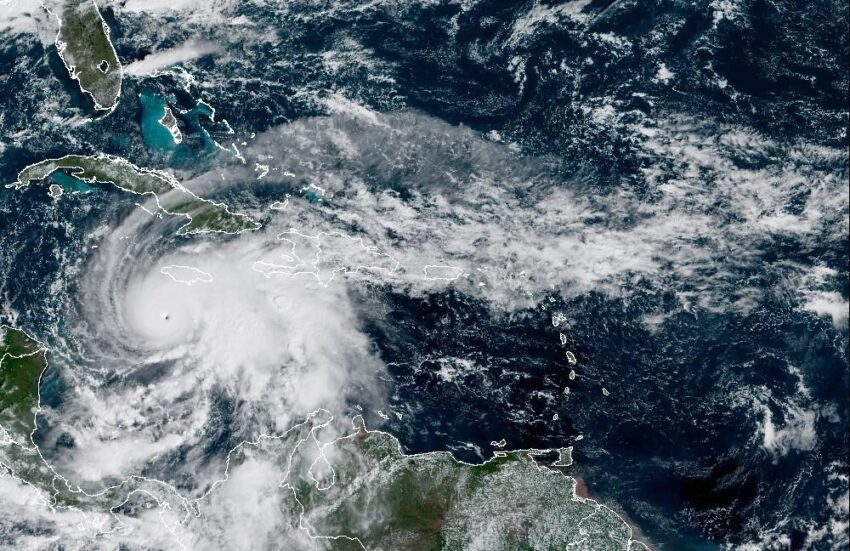
melissa set to be the strongest hurricane Hurricane Melissa is poised to make landfall in southern Jamaica within the next 24 hours, potentially marking a historic moment as the most catastrophic storm to ever impact the Caribbean island.
melissa set to be the strongest hurricane
Current Status of Hurricane Melissa
As of Monday morning, Hurricane Melissa officially reached Category 5 status, boasting maximum sustained winds of 160 mph. This classification, the highest on the Saffir-Simpson Hurricane Wind Scale, indicates that Melissa possesses the potential for devastating impacts, including severe structural damage and life-threatening conditions.
The National Hurricane Center (NHC) has been closely monitoring Melissa’s trajectory and intensity. As it moves across the northern Caribbean Sea, forecasters are particularly concerned about the storm’s ability to maintain its strength. While fluctuations in intensity are expected, the prevailing environmental conditions suggest that Melissa could continue to strengthen before making landfall.
Factors Contributing to Melissa’s Intensity
Several key factors are contributing to the hurricane’s current intensity and potential for further strengthening:
- Warm Ocean Waters: The Caribbean Sea is experiencing unusually warm water temperatures, which serve as fuel for hurricanes. Warmer waters can lead to increased evaporation and, consequently, more intense storms.
- Low Wind Shear: Wind shear refers to the change in speed and direction of winds at different altitudes. Low wind shear allows hurricanes to maintain their structure and intensity, making it easier for storms like Melissa to strengthen.
- Atmospheric Conditions: Favorable atmospheric conditions, such as high humidity and low pressure, further support the development and intensification of hurricanes.
Historical Context of Hurricanes in Jamaica
Jamaica has a history of experiencing hurricanes, but none have reached the catastrophic potential that Hurricane Melissa is projected to bring. The island has faced numerous storms over the years, with varying degrees of impact. However, the projected intensity of Melissa raises concerns about unprecedented damage and loss.
In 1988, Hurricane Gilbert struck Jamaica as a Category 3 hurricane, causing widespread destruction and resulting in significant loss of life. More recently, Hurricane Dean in 2007 and Hurricane Sandy in 2012 also impacted the island, but neither reached the catastrophic potential of a Category 5 storm.
Potential Impacts of Hurricane Melissa
The implications of Hurricane Melissa making landfall as a Category 5 hurricane are severe. The potential impacts include:
- Wind Damage: Winds exceeding 157 mph can cause catastrophic damage to buildings, uproot trees, and lead to widespread power outages.
- Storm Surge: A significant storm surge is expected, which can inundate coastal areas, leading to flooding and erosion.
- Heavy Rainfall: The hurricane is likely to bring heavy rainfall, resulting in flash flooding and landslides, particularly in hilly areas.
- Displacement of Residents: Thousands of residents may be forced to evacuate their homes, leading to a humanitarian crisis.
Preparedness and Response Efforts
In anticipation of Hurricane Melissa, local authorities in Jamaica are ramping up preparedness and response efforts. The Jamaican government has issued warnings and advisories, urging residents to take the storm seriously and prepare for potential evacuations.
Emergency services are on high alert, and shelters are being prepared to accommodate those who may need to evacuate. The government has also coordinated with various agencies to ensure that resources are available for immediate response and recovery efforts.
Community Involvement and Resilience
Community involvement plays a crucial role in disaster preparedness. Local organizations and community leaders are working to disseminate information and ensure that residents understand the risks associated with Hurricane Melissa. This includes:
- Public Awareness Campaigns: Efforts to educate the public about the importance of preparedness, including securing homes and having emergency supplies ready.
- Volunteer Mobilization: Local volunteers are being organized to assist with evacuation efforts and provide support to vulnerable populations.
- Collaboration with NGOs: Non-governmental organizations are partnering with the government to provide additional resources and support for affected communities.
Global Implications of Hurricane Melissa
The potential impact of Hurricane Melissa extends beyond Jamaica, raising concerns about broader implications for the Caribbean region and beyond. As climate change continues to influence weather patterns, the frequency and intensity of hurricanes are expected to increase, posing a significant challenge for vulnerable island nations.
Countries in the Caribbean are particularly susceptible to the effects of hurricanes, which can disrupt economies, displace populations, and strain resources. The international community may need to consider increased support for disaster preparedness and response initiatives in the region.
Climate Change and Hurricane Intensity
Research indicates that climate change is contributing to the increasing intensity of hurricanes. Warmer ocean temperatures and changing atmospheric conditions are creating an environment conducive to more powerful storms. As a result, hurricanes like Melissa may become more common, necessitating a reevaluation of disaster preparedness strategies.
Policymakers and scientists are calling for urgent action to address climate change and its impacts on weather patterns. This includes investing in infrastructure that can withstand extreme weather events and implementing policies aimed at reducing greenhouse gas emissions.
Conclusion
As Hurricane Melissa approaches Jamaica, the potential for catastrophic impacts looms large. With maximum sustained winds of 160 mph, the storm is set to challenge the resilience of the island and its residents. The combination of warm ocean waters and low wind shear creates an environment ripe for further strengthening, raising concerns about unprecedented damage.
Preparedness efforts are underway, with local authorities and communities mobilizing to ensure the safety of residents. However, the broader implications of Melissa extend beyond immediate concerns, highlighting the need for long-term strategies to address the increasing threat of hurricanes in the context of climate change.
As the world watches, the response to Hurricane Melissa will serve as a critical test of Jamaica’s preparedness and resilience in the face of one of the most powerful storms in its history.
Source: Original report
Was this helpful?
Last Modified: October 27, 2025 at 8:36 pm
0 views















